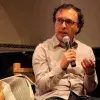Rectors of Ibero-American universities have analyzed the importance and impact of continuing education on work and society, as well as on current and future world challenges.
“Before (continuing education) was an additional activity, but we are now analyzing it as a key activity,” said David Garza, Rector and Executive President of the Tec at the 2022 International Symposium of the Continuing Education Network of Latin America and Europe (RECLA for its initials in Spanish).
Also participating were Ignacio Sánchez, Rector of the Pontifical Catholic University of Chile; Raquel Bernal, Rector of the University of Los Andes in Colombia; and Miguel Castro, Rector of the University of Seville.
During the panel, moderated by Margarita Guarello, President of RECLA, the participants also shared the work they are doing at their universities to explore and integrate continuing education into their syllabuses.
This symposium was organized by Tec de Monterrey and the Autonomous University of Nuevo León (UANL for its initials in Spanish), at the Monterrey campus.
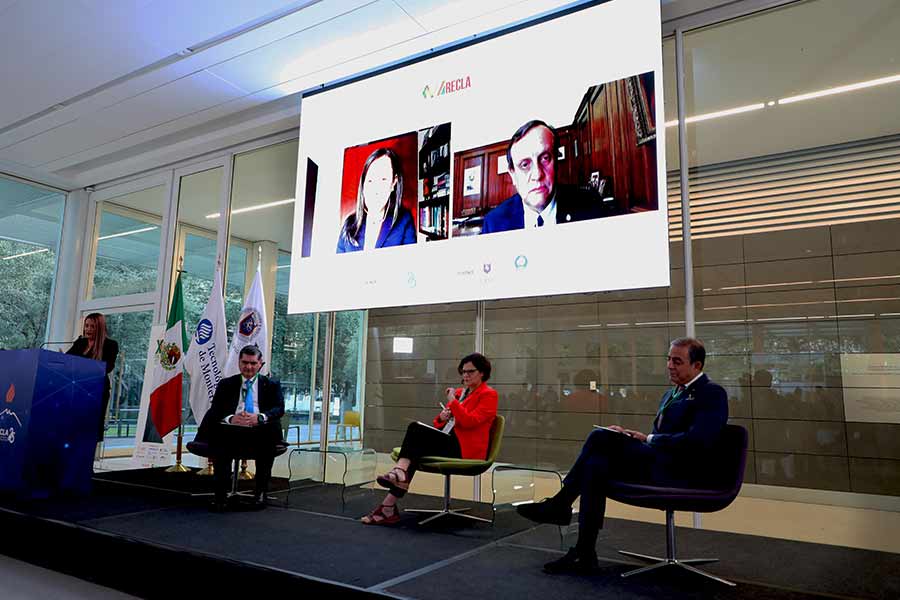
Development of new educational models
The panelists warned about changes in education that are presenting current and future challenges to both traditional and continuing education.
Some that Bernal spoke about included advances in technology; changes in work, economic, and geopolitical fields; the characteristics of the youth of today and of the future; and even challenges such as climate change and sustainability.
“You also have to provide training for different levels of education. This changes our models and is going to require a lot of knowledge,” the rector added.
David Garza said that some of these changes began or were accelerated during the pandemic, which highlighted the need to explore new teaching models.
“Digitalization, aspects such as the “Great Resignation,” and changes in supply chains all put pressure on the different sectors of society,” said the Tec de Monterrey rector.
What’s more, Garza points out that the education of the future can be multidiverse, with aspects such as multimodality, which includes hybrid, face-to-face, or distance models.
“It’s also multi-stage. We’re used to enrolling in universities and graduating after four years.
“I think this is going to continue, but it’s going to be complemented by people coming in and out at different stages of life,” Garza explained.
Garza added that the role of universities is not only to create content but also to curate and validate content that already exists and integrate it into continuing education
“Techniques, methodologies, and tools to meet current needs can be found in other sectors outside of universities, but we’re the ones with credibility,” said the Tec’s rector.
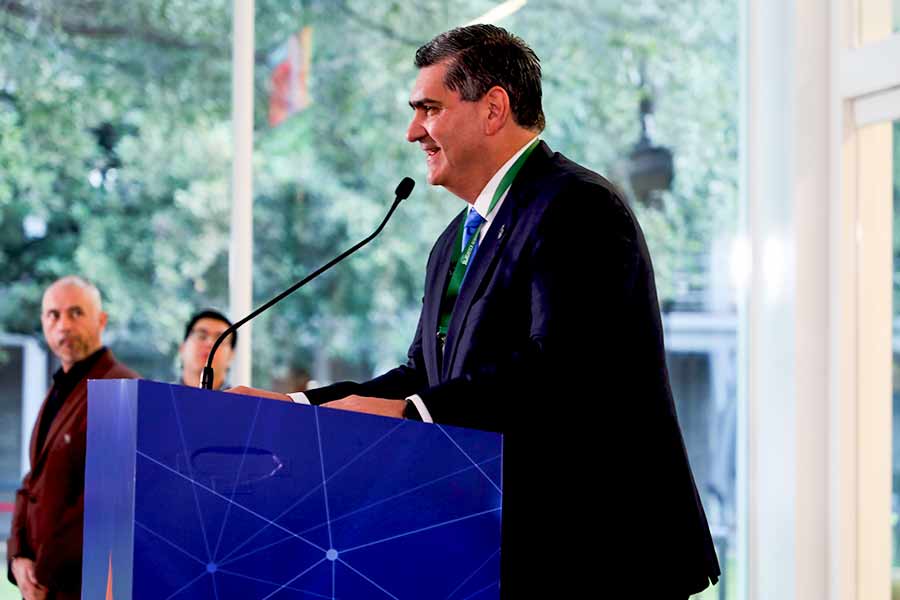
Impact on work, education, and society of continuing education
Rector Raquel Bernal highlighted that there needs to be more communication and collaborative work on the subject of continuing education between universities and stakeholders in the workplace.
Bernal said that in a survey, only 11% of employers believe that recent graduates have the necessary job skills, while 89% think that this is not the case.
On the other hand, 96% of academics think that graduates do have these skills, contrasting with the opinion of those in the labor field.
“This means we need to be more in touch with our context, not only with the industry. We also now have increasing demand from our students, who want to learn what they will need in their jobs,” said Bernal.
Rector Ignacio Sánchez also points out that continuing education at universities not only benefits the business and labor sector but should also have a beneficial impact on communities.
“Like research, continuing education is based on the development of knowledge, and we must transfer it to the community, said Sanchez.
“We know that there are graduates who have to refresh their studies. The challenges of society are changing and modifying the needs of what we have to learn and teach,” said Sánchez.
As part of continuing education, Rector Miguel Castro said that training structures have been changing and will continue to do so over time to adapt to the needs of education throughout life.
Some of those he mentioned are micro-credentials, hybrid courses, new spaces, models, and links with companies and society.
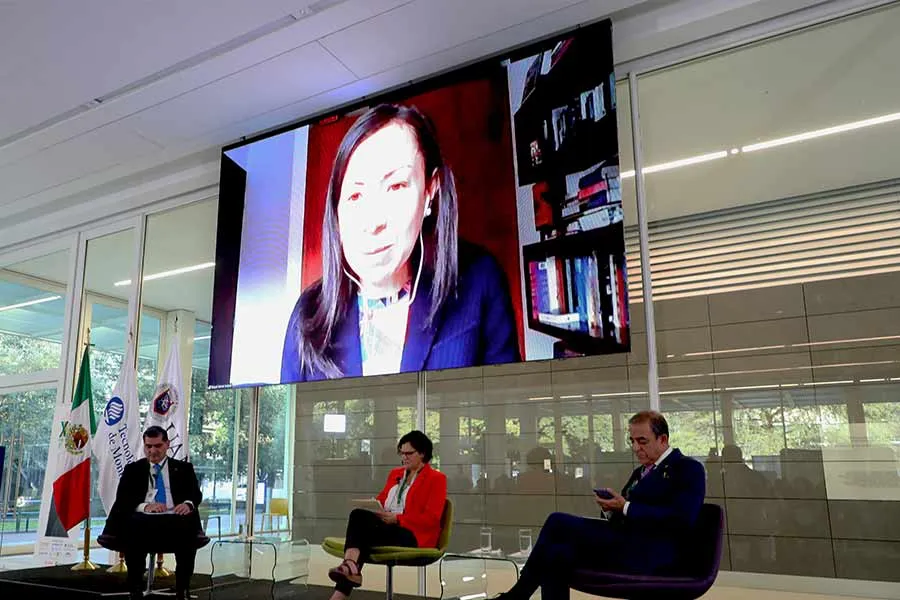
Aiming to work together
During the panel, the rectors address the importance of collaboration not only between universities and their social and work environments but also between universities.
Castro said that in Europe, educational efforts have been made to work through partnerships with various educational centers that collaborate to provide joint responses to the needs of the environment.
The Latin American rectors highlighted that they are already working in their universities on efforts such as the creation of Vice Rector’s offices to handle international affairs and work together with other educational institutions.
La Tríada is one example of this collaboration. It includes Tecnológico de Monterrey in Mexico, the University of Los Andes in Colombia, and the Pontifical Catholic University of Chile, which offer continuing education in their programs.
“Our goal is to promote continuing education globally. It’s important to have a greater impact,” said Sánchez.
“Interdisciplinary and collaborative work is essential,” added Bernal.
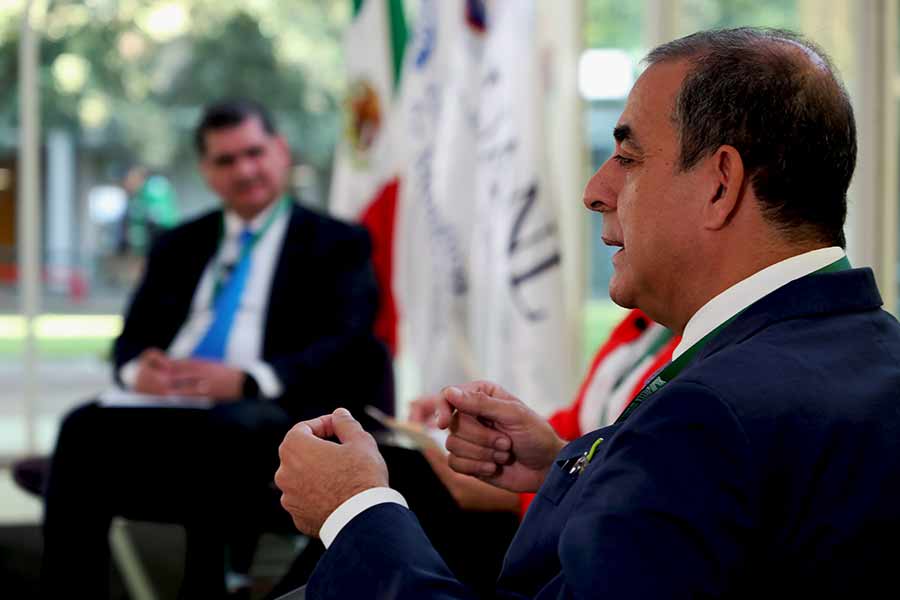
Continuing education with a social impact
The rectors concluded by pointing out that continuing education should not only be taken as a tool but as a way to improve social aspects and even promote inclusion and equity.
“It must reach the most disadvantaged sectors, stimulating men, women, adults, and young people. Continuing education has to be an integral part of the future plans of universities,” Sánchez said.
“I believe that continuing education can contribute to society, not only for refreshing and acquiring knowledge but contributing to the development of our countries,” said Bernal.
Another of the challenges pointed out by the rector of the Colombian university is the need not only to offer academic content in continuing education but also social skills to form good citizens.
“We mustn’t forget that our fundamental role is to form good citizens, providing leadership and empathy. We will not only serve young students but also people of all ages. I believe it’s a great challenge,” she said.
“Universities, through humanism and generating ideas, bring hope. We must be sensitive to the issues: migration, environmental challenges, geopolitical issues, and health problems. We must have a big impact,” Castro concluded.
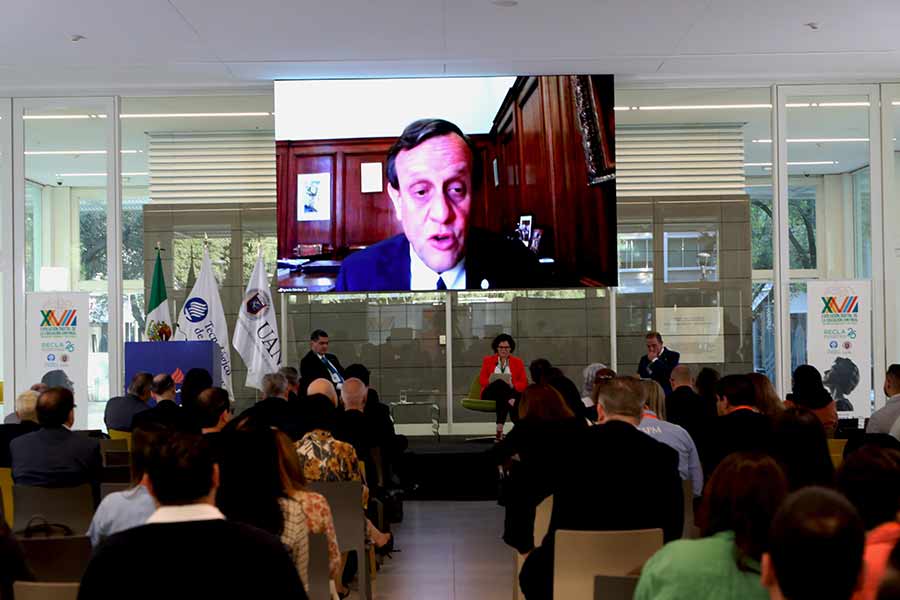
READ MORE:




